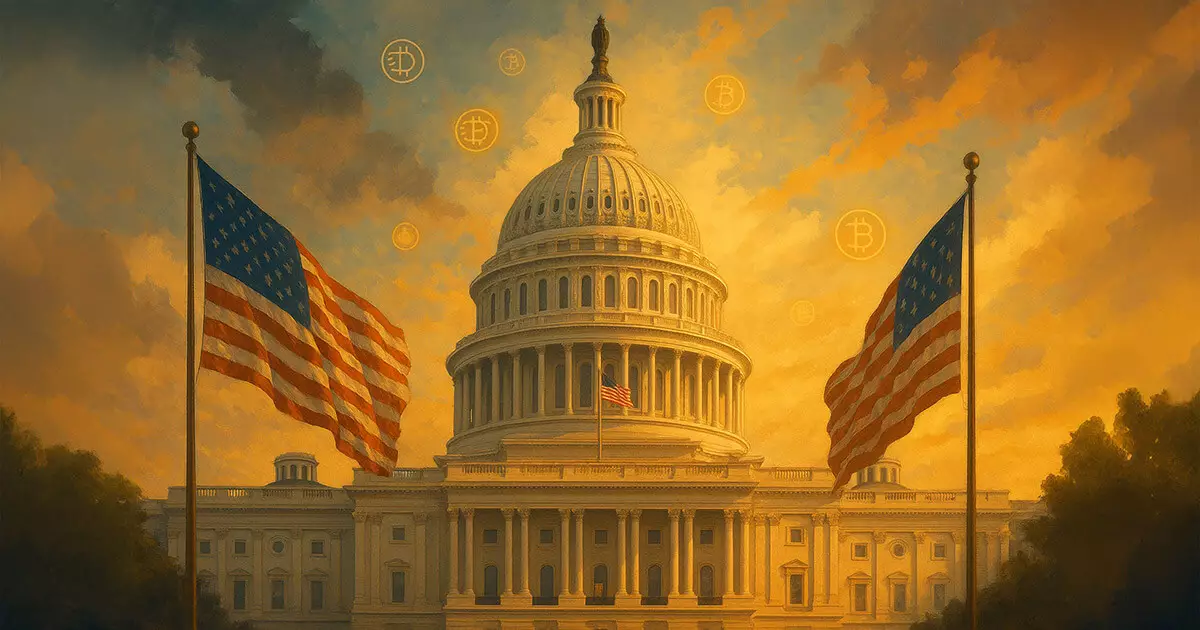The upcoming Crypto Week in Washington signals a strategic effort by lawmakers to reshape the future of digital assets within the United States. For years, the crypto industry has been stuck in a mire of regulatory uncertainty, which has discouraged innovation and driven entrepreneurs offshore. The proposed CLARITY Act attempts to bring order to this chaos by clearly defining the roles of the SEC and CFTC. This delineation is not merely administrative; it’s a recognition that the U.S. cannot afford to be left behind as a global leader in digital finance. By categorizing digital assets into securities, commodities, and stablecoins, the legislation aims to strike a balance—protect consumers without stifling entrepreneurial growth. While some critics argue that regulation may suppress innovation, the real concern lies in the current regulatory void that allows for arbitrary enforcement and legal ambiguity. Providing clarity can serve as a catalyst for responsible innovation, encouraging legitimate firms to develop compliant products rather than fleeing to jurisdictions with clearer, more user-friendly frameworks.
The Dangerous Promise of Stablecoins and the US Dollar
The Senate’s GENIUS Act signals a recognition that stablecoins are no longer just fringe financial instruments—they are integral to the future of digital commerce. By establishing a comprehensive federal framework, the bill seeks to legitimize dollar-backed digital assets, fostering trust and encouraging mainstream adoption. It aims to prevent a repeat of the chaos seen in less regulated markets, ensuring stablecoins operate under rigorous oversight that safeguards consumers and preserves the dollar’s dominance on the global stage. To skeptics, this might seem like regulatory overreach; however, in the larger context, it is a necessary step toward integrating digital finance into traditional economic structures. For center-right policymakers, supporting a stable, well-regulated digital financial ecosystem enhances America’s competitive edge. It keeps the dollar at the forefront of global transactions, ensuring the U.S. remains a financial powerhouse rather than ceding ground to unpredictable or opaque alternatives. Proper regulation should empower innovation, not crush it, and the GENIUS Act is poised to do exactly that if carefully implemented.
The Threat of Government Overreach through Digital Currency
Perhaps most contentious is the Anti-CBDC Surveillance State Act, which reflects a nuanced concern with overreach. By explicitly prohibiting the Federal Reserve from issuing a central bank digital currency (CBDC) to individuals, the legislation champions privacy and personal sovereignty. In a digital age where financial data can be weaponized, this move is less about opposition to technological progress and more about defending fundamental rights. It’s a pragmatic stance that recognizes the potential dangers of a state-controlled digital currency—excessive surveillance, loss of financial independence, and a new frontier for government overreach. For center-right liberals committed to individual liberty, this is a critical safeguard. It’s about ensuring that innovation in digital currency does not come at the expense of personal privacy or free-market principles. The U.S. must strike a delicate balance—encouraging technological progress while resisting the temptations of unchecked governmental power that could erode civil liberties under the guise of digital progress.
A Foundation for America’s Digital Future—Cautiously Optimistic
This legislative push during Crypto Week is not just about fostering innovation; it’s about claiming strategic leadership in the global digital economy. The U.S. risks falling behind if regulatory uncertainty persists, and the proposals on the table aim to rectify that. However, the path forward is fraught with challenges. Clear-cut definitions and frameworks risk becoming rigidity if policymakers do not remain adaptable. The threat of over-regulation looms, which could choke innovation in its infancy or push talent and capital abroad. Conversely, over-lax policies could invite scams, fraud, and systemic risks that undermine public trust. The balance the U.S. strikes in the coming months will determine whether it leads the world into a deregulated, innovation-friendly future or accepts the risks of falling into regulatory paralysis. From a pragmatic center-right perspective, the goal should be a cautious but firm framework—one that promotes responsible growth, protects consumers, and preserves the nation’s economic sovereignty in an increasingly digital financial landscape. Only then can America secure its position as a premier hub for digital assets while safeguarding foundational liberties.


Leave a Reply